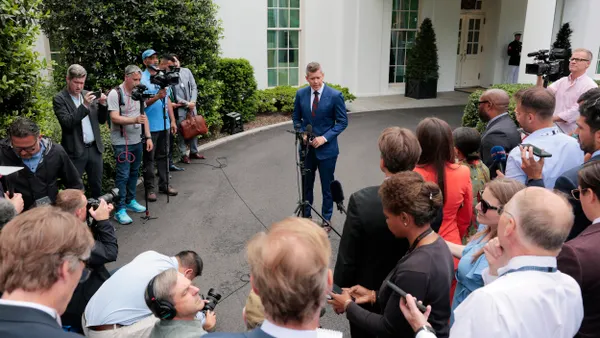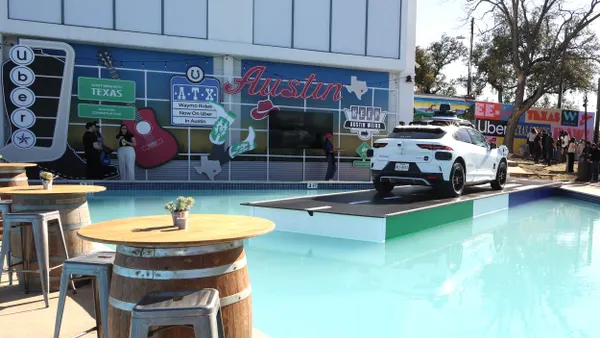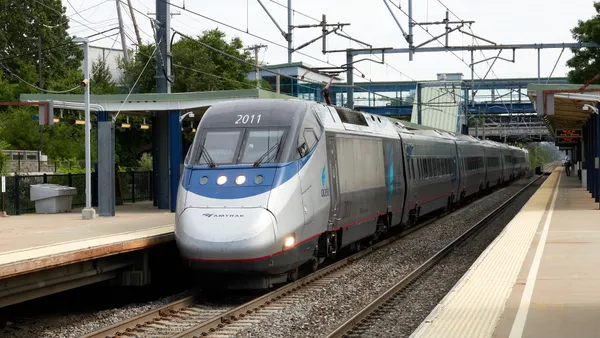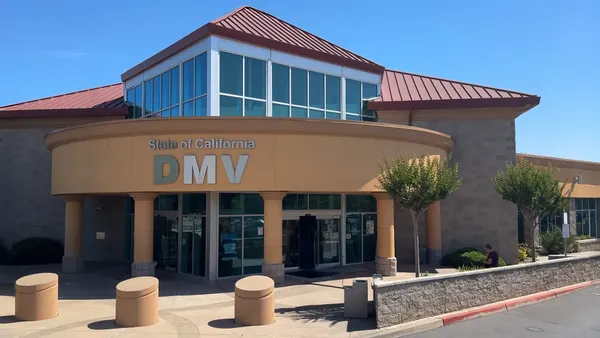Dive Brief:
- Dallas City Manager T.C. Broadnax sent a warning letter to the city's five dockless bike-share businesses — LimeBike, Ofo, VBikes, Spin and Mobike — telling them to clean up the bikes left littered in public spaces or the city will remove the bikes.
- City staff met with the bike-share companies last month to lay out expectations, but Broadnax says the city has not seen improvement. The bike-share companies have until Feb. 9 to meet the city's expectations.
- Dallas staff have asked the companies to relocate all bikes that are on sidewalks less than 10 feet in width, blocking transit or private property access, blocking sidewalk ramps, located on trails and located on turf, landscaping or other similar surfaces.
Dive Insight:
The city manager's strong message to dockless bike-share businesses, in which he basically says "clean up or get out," shocked some people. But for others, it was a welcome move that was a long time coming. This is not the first time the city has called bike-sharing companies to task. Dallas staff were less vocal about their meeting with the companies in December, but the city manager spoke out and sent the letter when problems continued.
The problem Dallas has with dockless bike-share is less about the companies themselves and more that customers are littering the city with improperly placed bikes. Someone even started an Instagram account called "Dallas Bike Mess" that posts pictures of bikes inappropriately left all over the city, from in waterways to on top of fences and even hanging from a power pole. Arguably, such an account might prompt people to stage some of the photos, but nonetheless it highlights a greater issue.
The unpredictability of where a dockless bike will end up has been a factor in some cities choosing to forego adding dockless systems, or at least postponing them until they see more evidence of it working. St. Paul, MN just nixed the idea of allowing dockless bike-share into its borders for a variety of reasons, with public clutter being one of them. Coronado, CA listed clutter as a concern from the start during the debate over whether to permit dockless bike-sharing companies; it decided last month to put the idea on hold.
Dockless bike-share surged into the U.S. market last year with a number of domestic startups and foreign companies all arriving at the same time. Washington, D.C. was among the first cities to welcome the trend, and like other cities, it put dockless bike-share companies on a limited pilot program. Because the businesses all emerged at the same time and entered into pilots at the same time, a number of cities all have pilots ending this spring and summer.
It will be interesting to see if municipalities decide to extend the contracts or if factors such as cluttered public spaces will prompt them to end the concept with the conclusion of the pilots. It will also be interesting to see if dockless bike-share will be met with an untimely death in the United States, or if the outcry over clutter is a bump in the road. For now, the industry may just be suffering from a "too much, too soon" situation that can be solved with better public education campaigns.










